JON DAVIDSON
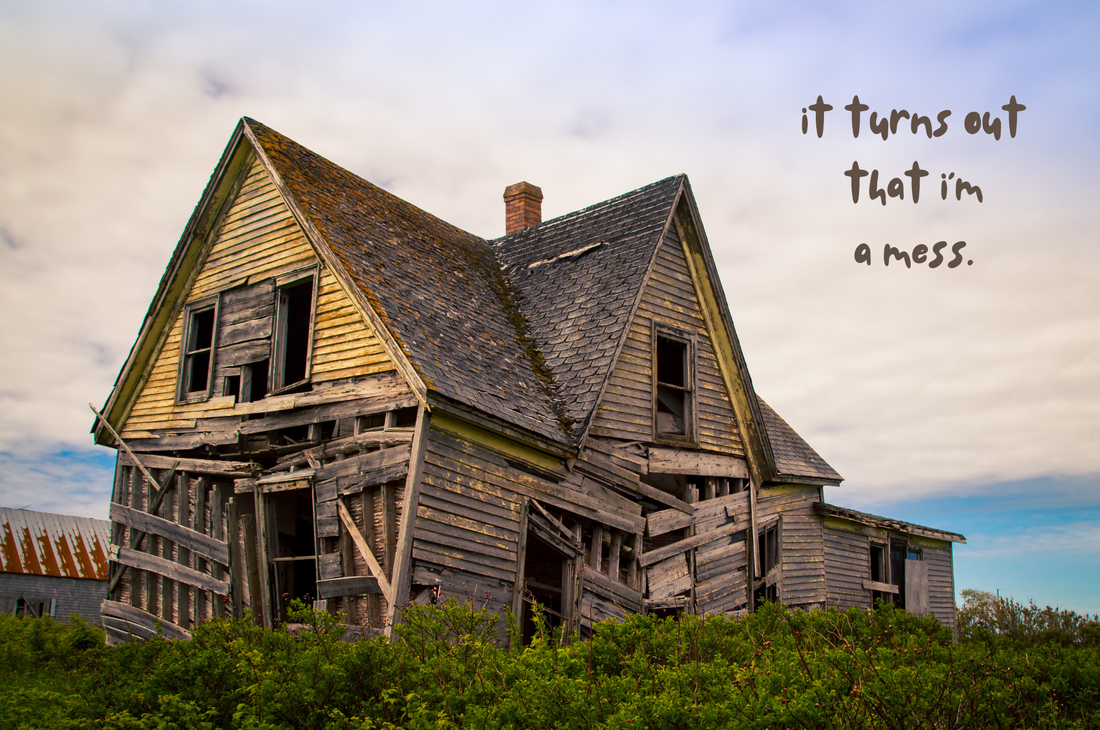 It’s no secret that I love real estate. Buying. Selling. Investing. Renovating. Landlord-ing. I enjoy certain facets of real estate ownership more than others, to be sure, but overall, it’s a fascinating world, one that I’m passionate about, one that I would recommend to virtually everyone. I bought my first house at 22 with a friend, taking advantage of lax lending regulations to put 5% down on a four-bedroom house in Portland, Oregon. When the housing market crashed in 2007, my friend and I panicked a bit internally, but instead of short-selling our home like so many of our friends did, we hung onto it, renting out all its bedrooms to help pay the mortgage. After a few years of suffering through 80-hour work weeks, I’d saved up enough to buy my second house, a recently constructed condo in Portland. I moved in. Wash, rinse, repeat: I proceeded to replicate this process every couple years, as frequently as I could afford to. Far from a handyman at the time, though, I stuck to buying turnkey homes, not ready to take on any sizable rehab projects. In 2018, I bought my fourth house, and my first fixer-upper, a gorgeous Victorian-meets-craftsman home in need of some work. I found this gem in The Dalles, Oregon, a rapidly growing real estate market due to an influx of jobs and a migration of Portlanders. This home showed loads of potential, despite the fact that previous tenants had completely trashed the place, and despite the fact that it had sat vacant and bank-owned for over a year. My realtor and I took one look at it, and in spite of the peeling maroon paint and the dingy carpet, in spite of the hideous countertops and enormous elephant and giraffe murals (seriously) on one wall, I fell in love with the floor plan, the architectural flourishes, and the location, and said, “This is the one.” After renting out my Portland house, putting all my belongings into storage, and volunteering for a month in Uganda and vacationing for 10 days in Serbia, I flew back to Oregon and closed on this house the same day. I anticipated, and budgeted for, putting about $10,000 into flooring, paint, and countertops, but didn’t anticipate what happened next. Several days after closing, I drove an hour and 15 minutes from Portland to The Dalles to replace an upstairs tub faucet that was missing. I had already called the local water utility company to set up my account, but explicitly instructed the technician I spoke with to wait to turn the water on until I instructed them to do so. The next day, a different technician, disregarding the first tech's careful notes, flipped on my water. Oops. I walked into the house a day later with a couple friends and heard the sound of rushing water. I uttered some unsavory words that I won’t repeat here. The downstairs was filled with six inches of water throughout. The entire upstairs bathroom was flooded as well. The walls, doors, floors, and ceilings were all completely ruined. The city’s insurance “covered” the damage, but thanks to the depreciated value of what needed to be replaced, I still was on the hook for over $24,000. In the blink of an eye, what I thought was a fixer-upper that needed some cosmetic repairs had turned into a massive remodel project. Instead of dipping my toe into the world of home renovation, I was pushed headfirst into the deep end of an Olympic pool. Four months of being a homeless homeowner later, I was finally able to move into my newly remodeled home. We are not too different, my houses and I. In fact, in a sense, we’re all houses. You. Me. Everybody. Many of us would like to think that we’re turnkey homes. Neatly remodeled. Beautiful. Commanding top dollar on the market. Many of us spend our lives trying to portray perfection to an admiring world. The truth is, though, we’re all fixer-uppers. We are all damaged. We are all in need of remodeling. Think you have it all together? You’re wrong. I’ve looked at a lot of homes over the years, during the process of purchasing my rental houses. Some look incredible in the listing photos, but atrocious in person. Some even pass the in-person test, yet an inspection reveals major structural damage. A cracking support beam. Black mold. Broken sewage pipes. Last year, I purchased and remodeled a house in Lansing, Michigan. (I’m now far more handy than I was a few years ago). Once I got my hands dirty, I found problems that even the inspection didn’t reveal. For instance, the entire house was constructed using 2x3 boards instead of the standard 2x4, which meant that each window and door I replaced had a frame that was too thick for its surrounding walls. Furthermore, while replacing one interior door, I found that studs throughout an entire wall had been eaten away by termites, and had all the structural integrity of old Styrofoam. In much the same way, I keep finding more and more areas of my life that need work. I began going to counseling three years ago to deal with some acute trauma, not least of which was my fall off of a volcano and subsequent year-long recovery. I’m still going to counseling, even though my body has healed. I was under the impression that my emotional wounds were situational and superficial. I was wrong. It turns out that I’m a mess. My hurts, fears, needs, and scars run deep, all the way from childhood. I thought I would need some cosmetic repairs, but instead, I’m in the process of a lengthy, comprehensive remodel. Sometimes the amount of work that needs to be done inside feels completely overwhelming. Much like a home remodel, I’m faced with a choice. Do I slap on a fresh coat of paint, maybe upgrade some appliances, and call it good? Or do I face myself for who I am, and get into the very foundation of this house, the framework, the bones, and do the hard work to change from the inside out? We are all fixer-uppers. Unlike real estate, though, we only get one shot at this life. What are we going to do with our one and only house, our one and only life? Trash it? Neglect it? Give it fresh siding on the exterior but never touch what’s inside? Or undertake the lifelong process of remodeling it, down to the studs if necessary? Knowing that we all need work on the inside should lead us to two conclusions. First, we need to remember to show others in our lives the same grace and patience that we would expect when their rough edges are exposed. Second, we need to remember to show ourselves that same grace when our remodel takes a step backward, when areas of our lives we thought we’d worked on fall apart, when we find ourselves making the same mistakes. “Our body is the house in which our spirit lives here on earth,” Paul says (2 Corinthians 5:1, Worldwide English). We were never promised that things would go well inside this house: “While we are in this house, we cry and are troubled (v.4).” But there is good news: one day, these renovation projects will come to an end. “When that house is destroyed, then God will give us another house. That house is not made by man’s hand. But God made it. It will last forever (v.1).” There is also bad news. We’ve been waiting a long, long time. I’ll be honest: believing that Jesus is coming back is one of the hardest aspects of faith for me. Though they break my heart, I can understand why pain and death exist on this Earth. We were given free will by a loving God, and we chose to turn our backs on his perfect plan. He made a way for us to be forgiven, at the cost of his own life. He promised to come back again, to put an end to these constant remodels, this never-ending cycle of suffering that is life on this planet. He cries when we cry. He hurts when we hurt. If this is true, he should have a vested interest in coming back as soon as possible to wipe our, and his own, tears away. Furthermore, he said he’d come back when the whole world had heard the good news of grace. Maybe some remote Indonesian island has yet to hear of Jesus, but even if so, babies are being born every day that can’t yet think for themselves, so there will never be a point where everyone on Earth has heard of Jesus. So here we sit, making the same mistakes, hurting each other and ourselves over and over, and dying. It’s been 2,000 years since Jesus promised to return, and we are starting to lose hope. Without this hope, though, there is little hope at all. I’ve let my mind and heart wander down the avenue of agnosticism on occasion. I completely understand why so many give up on making sense of this life, raising their hands and saying “who knows?” But for me, without the hope of someday trading in this old, rotten heart for a new one, someday trading in this roller coaster life of joy and pain and cancer and heartbreak for a forever life of love and happiness, I can’t find much hope with which to face today, much less tomorrow. And so I cling to this hope. Hope that one day this fixer-upper of a life, this messy rehab project named Jon Davidson, will be new, will be perfect, will be beautiful.
1 Comment
Chihuahua, I’m in love with you. If you’ve stumbled upon this article while looking for information regarding taking your beloved dog on a walk in nature, stumble on out of here. My feelings about your pooch are ambivalent at best. The Chihuahua I love, though the birthplace of the eponymous canine, is Mexico’s largest state, and also one of its most beautiful. Soaring granite cliffs, 800-foot waterfalls, snowcapped mountains, evergreen forests, desolate deserts, and the world’s largest canyon system (no big deal), all packed into a state a bit smaller than Michigan. Headed to Chihuahua? The prospect of trying to cram all this beauty into a short trip may seem daunting. Fortunately, I’ve done the legwork for you. Here are my eight favorite hikes in Chihuahua. CASCADAS DE BASASEACHIC/PIEDRA VOLADA Distance: 2 miles to top of falls/6 miles to base of falls Time: 1 hour/5 hours Difficulty: Easy/Difficult This place. One of the most stunning places I have ever been, Parque Nacional Cascada de Basaseachic (Basaseachic Falls National Park) evokes images of Yosemite with its towering granite cliffs, winding canyons, pine forests, and, of course, its record-breaking waterfalls. Cascada de Basaseachic is the second-tallest waterfall in Mexico, plunging 853 feet to the rocks below. Mexico’s tallest? The neighboring Cascada de Piedra Volada, a whopping 1485-foot cascade. Unfortunately, Piedra Volada is a seasonal waterfall and was dry when we visited in November. Basaseachic, however, runs all year round. The drive to this natural wonder takes 4.5 hours from the city of Chihuahua, or 2.5 hours from the stunning mountain town of Creel. First, head to the Mirador by following signs from the town of El Entronquito. Here, park and hike just a couple minutes to a lookout platform where you can take in the waterfall in its entirety. Next, retrace your steps, head north on Highway 16, then turn left and follow more signs till you get to the trailhead that will lead you to the top of the falls. Parking here will cost between 20 and 30 pesos. A gently sloping 2-mile round trip trail takes you to one of the most spectacular places on Earth. Cliffs rise to the heavens on your right, while the falls tumble down into the depths right in front of you. Candameña Canyon snakes away in multiple directions. The river itself passes through a small natural arch before its big drop. Thankfully, the viewing area here is fenced in, as a fall from here would be a terrible idea. Follow the trail to your left and across the river, and ascend the hill on the other side for another excellent view. Got more time? Follow this trail all the way to the base of the falls, which will take you another 4–5 hours down a steep, rocky trail. Retrace your steps and bask in the beauty. BARRANCAS DEL COBRE Distance: 1.25 miles on foot, 2 miles on zipline Time: 1.5 hours Difficulty: Moderate Barrancas del Cobre, or Copper Canyon, is the largest canyon system in the world, five times larger than the Grand Canyon in the United States. It goes without saying, then, that a multitude of great hiking options abound, as well as the Chepe Express, an epic train that takes you through the entire length of the canyon from Chihuahua to Los Mochis, Sinaloa (a train I fully plan on taking on my next trip to this beautiful state). For the sake of adventure, though, I’ve selected a hike that also boasts the world’s second-longest zipline, one that will whisk you across an almost 2-mile expanse of the canyon at upwards of 70 miles per hour. It’s called the ZipRider. Start at Parque Aventura Barrancas del Cobre, an hour from Creel, and skip the bus from the parking lot, hiking a half mile to the canyon’s rim. Buy your ticket, head to the zipline platform, and get strapped in. Then, fly. If you’re an adrenaline junkie, the average zipline may bore you. I assure you that this one will not. Not only do you get to soar above the canyon, but you also get to hike up a steep chunk of canyon at the end, leading you to a small rocky plateau in the middle of the canyon. Here, you’ll be greeted with 360-degree views, a small restaurant, and the platform where you’ll board the gondola that takes you back to where you began. Tickets are $1000 MXN, but worth every peso. The hike portion itself only lasts 20–30 minutes, but the views are unmatched, and you’ll get to clamber over all kinds of boulders on the plateau as well if you still haven’t gotten in enough steps for the day. VALLE DE LOS MONJES/LOS HONGOS Distance: 1 mile Time: 1 hour Difficulty: Easy to moderate If you haven’t noticed by now, much of Chihuahua’s beauty is accessible from the town of Creel. This next hike is no exception. It should be noted that Creel is a worthy destination in its own right. At over 7,000’, this mountain town is surrounded by adventure and boasts Old West architecture. Its lively main street paints shades of a touristy town in backcountry Colorado somewhere. Just 30 minutes east of town lies Valle de Los Monjes, or Valley of the Monks, so named because its hundreds of soaring hoodoos resemble monks assembled in small groups. Follow signs down a bumpy dirt road (driveable for passenger cars), and either whilst coming or going, stop by Valle de Los Hongos, a small valley featuring groups of large, mushroom-shaped rocks. Though impressive in its own right, this valley is only a precursor to the grandeur that is to come. At the end of the road, pay the entrance fee of $100 MXN. Park. Even from the parking lot, the views of these hundred-plus-foot-tall rock spires are stupendous. Follow the obvious trail up a slope till you’re completely surrounded by these priestly hoodoos, arrayed in formation throughout a serene valley. I’ve never been in a more quiet, peaceful place, as the only sound I could hear was that of boot on rock. Scramble. Climb. Explore. Sit. Take photos. Do whatever suits you. Valle de Los Monjes will awe you, inspire you, silence you. Then, head back the way you came. For an honorable mention, head 30 minutes southeast of Creel to Cascada Cusárare, a 45-minute hike to a 100-foot, thunderous cascade boasting unbelievably blue water. CAÑON DE NAMURACHI Distance: 0.5 miles Time: 45 minutes Difficulty: Easy Though only a mile round trip, the hike to the end of Cañon de Namurachi will take your breath away. Reminiscent of some of Utah and Arizona’s most beautiful slot canyons, Namurachi features caves, pillars, and a dramatic point where the canyon all but closes over your head. This canyon lies in the middle of nowhere, about 2 hours from the city of Chihuahua. We visited it on the way to Basaseachic, but it does require a lengthy detour. This detour, however, is definitely worth it. Arrive, park, pay a small $40 MXN entrance fee, use the surprisingly great restrooms if necessary, then start down the wide trail. Along the serpentine way, you’ll pass cliffs replete with caves and unusual rock formations, as well as evidence of flooding. Pouring rain? Avoid this hike, as it’s not a great place to be during a flash flood. Soon, you’ll reach a dramatic hall at the end of the trail, where the cliffs on either side of you attempt to reach out and touch one another. Small Catholic shrines have been placed at the base of the cliffs, and dark mineral streaks on either side of the hall give this place a uniquely beautiful appearance. This is a great place to stop and reflect, grab a snack, and snap a photo or three before heading back to your car. CAÑON LAS MONJAS Distance: 1 mile Time: 2 hours Difficulty: Difficult This canyon is, in my humble opinion, the best-kept secret in all of Chihuahua. If Namurachi was a little too easy for your adventurous side, Las Monjas ups the ante, providing a canyoning, scrambling adventure that you almost assuredly will have to yourself. If Namurachi was in the middle of nowhere, this canyon actually appears as the definition of nowhere in the dictionary. Also two hours from Chihuahua, but due west of the city instead of southwest, this canyon lies very close to Parque Nacional Cumbres de Majalca as the crow flies, and shares some of its geological formations with this much more frequented neighbor. We accessed this canyon from the northwest, through Colonia Obregón, but access is also possible from the southeast. Regardless of which access point you choose, the road to Las Monjas is desolate and very bumpy and eroded. On three different occasions, we had to get out and move rocks so that our Chevy Aveo could pass. Make sure you fill up on gas and snacks before heading towards Las Monjas, as there is no cell coverage and no services out here. Google Maps will take you to the primitive parking lot, though, where you’ll find evidence of people having been here, but most likely no other people. Entry is free, as you might imagine. Walk around the hill in front of you to the right, then curve to the left, and follow the stream as the canyon begins. As you enter the canyon, the river forms a beautiful set of terraced pools carved out of the rock, and Las Monjas (The Nuns) start to rise on either side of you. Several points require a decent scrambling skill set, and at least one cliff requires a low Class 5 move or two to get down to the next part of the canyon. Meanwhile, crazy cliffs and hoodoos tower above you. The canyon itself is not that long, less than a mile, but the going is slow. And amazing. If you aren’t much of a rock climber, access to the lower part of the canyon is also possible by scrambling directly up the hill in front of the parking lot, then picking your way carefully down in between the cliffs and cactus. This approach, which we took on the way back, takes about 30 minutes. Either way, this is a wild, untamed, beautiful place, one that will evoke images of everything from Utah to the High Sierras of Northern California. Go here. GRUTAS NOMBRE DE DIOS Distance: 1 mile Time: 1 hour Difficulty: Easy Do you prefer your hikes underground? Head to Grutas Nombre de Dios. Right outside the city of Chihuahua, this cave system boasts a smorgasbord of interesting rock formations, enormous halls, and subterranean waterways. An hour-long guided tour, which costs only $60 MXN, will take you on a mile-long hike underground through 17 different halls. You’ll view the Tower of Pisa, the Waterfall, the Heart, the Altar, and many more figures created by nature, some of which require a little imagination to make out. At the end, you’ll catch a shuttle back to the main entrance! Craving even more adventure? Options for rappelling, spelunking underground rivers, and descending into six unexplored caverns are available. For a sporty, subterranean honorable mention, explore Grutas de Coyame, right off the road en route to Cañon del Pegüis. CAÑON DEL PEGUIS Distance: 0.5 miles Time: 2 hours Difficulty: Easy Okay, so this one isn’t actually much of a hike. It is, however, a spectacular kayaking trip through a stunning desert canyon. It merits inclusion on its beauty alone, although you do encounter two small trail sections, if you’re trying to get in your steps. Head two hours north from the city of Chihuahua, stopping by a canyon viewpoint right off of Highway 16, where you can hike five minutes down a hill to peer down sheer canyon walls to the slithering river below. Next, continue northeast on the highway a couple more miles until you reach a junction with a dirt road heading across the desert. Take this bumpy road till you reach a parking lot. Pay a small parking fee, pay for your kayak rental ($200 MXN per hour as of 2021), then hike down a short trail to the banks of the Río Conchos. Here, the entrance to the canyon rears up to your right. You’ll be met by a friendly gentleman who will help you into your kayak and send you on your way. Right around the first bend, the grandeur of this magical place becomes readily apparent, as the canyon walls you stood atop just minutes before now rise over a thousand feet above you. When we went in November, the river was pretty shallow, so at several spots we had to portage our kayak a hundred feet or so (more steps to add to your daily total). As you kayak deeper into the canyon, the golden hues of the canyon walls reflect off the placid river as eagles soar above. Paddle onward until you decide to turn around, then take in views in the opposite direction as you return. PICOS DE LA LUNA Distance: 3 miles Time: 2 hours Difficulty: Moderate Don’t have much time to get out of the city of Chihuahua? Don’t despair. Many short hikes ring this underrated, beautiful city. My favorite? Picos de La Luna. Though only 3 miles long, this accessible hike affords you sweeping city views, unique rock formations, and a couple thigh-busting climbs. Located on a mountain in between downtown Chihuahua and its international airport, this hike starts at an unassuming dead end near the neighborhood of Rodolfo Aguilar. Google Maps provides accurate directions. Entry is free. Park your car on the side of the road and start walking up the obvious trail. After a mile or so, you’ll crest a ridge, getting your first view of the moon rocks from which this hike gets its name. Keep following the trail as it climbs. Finally, you’ll reach the bottom of a steep ridge replete with gendarmes and hoodoos. Scramble up to the viewpoint of your choice in between these otherworldly spires, and drink in the view. If you have time to catch a sunset, grab an honorable mention hike by climbing straight up the short, sweet slopes of Cerro del Pescadito, a conical hill just outside of town near the neighborhood of Quintas Sebastián. After a lung-busting 30-minute hike with nary a switchback in sight, you’ll arrive at a summit, graced with a white cross, that boasts sweeping views of the city and the rolling hills that surround it. To be honest, Chihuahua blew me away. Thanks to Instagram, I expected great things, and my expectations were completely surpassed. If you’re ready to see Mexico’s natural beauty in a whole new light, visit Chihuahua. Learn from my mistake and book your trip for longer than the six days I was here. Prepare to be amazed.
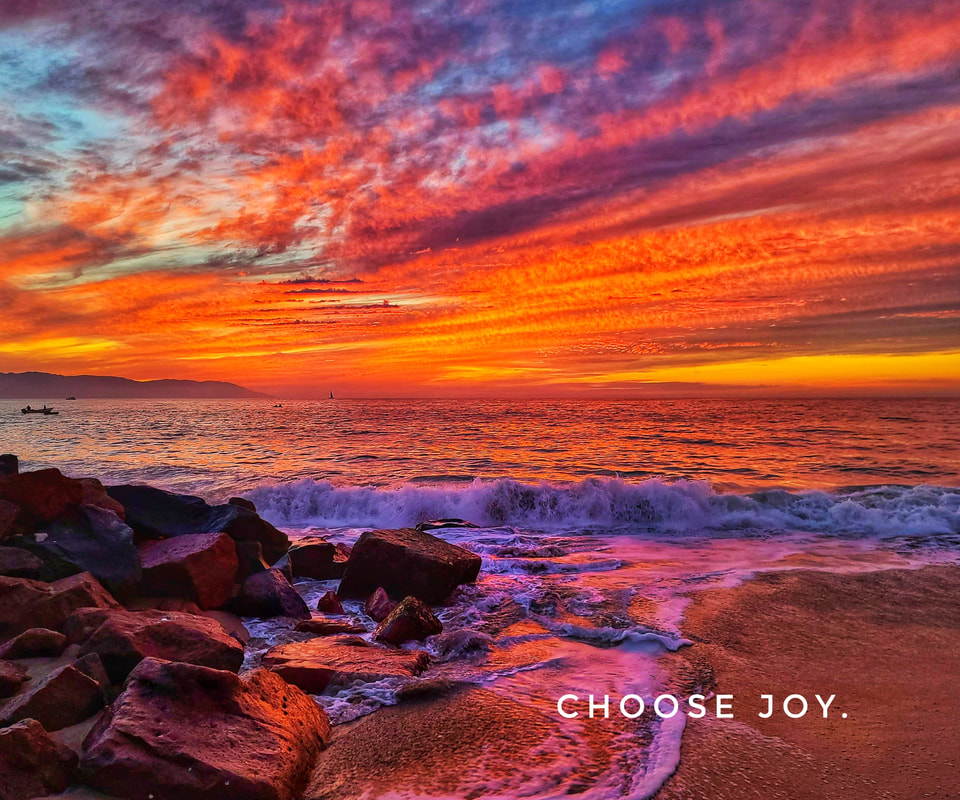 WHAT A ROMAN GOD CAN TEACH US IN 2022. 2021, you got us good. After the collective ordeal that was the onset of a global pandemic in 2020, most of us entered 2021 with high hopes. A COVID vaccine was on the horizon. Some semblance of normalcy was in sight. But between Delta and Omicron, shutdowns and re-openings, the Capitol riot on January 6, global supply chain issues, racial injustice, Afghanistan, killer tornadoes, Kyle Rittenhouse, wildfires galore, a coup in Myanmar, the Doomsday Glacier, the Suez Canal blockage, and so much more, it was anything but a return to normalcy on a global scale. Trickery, 2021. Trickery. Seems we thought no year could be crazier than 2020. Seems we were wrong. On a more personal and positive note, though, 2021 did afford me a few privileges I had been denied. My accident and subsequent spinal fusion surgery in 2019 meant I couldn’t hike or travel for many months. Once I had finally healed enough to do both of my favorite activities again, COVID hit, shutting down international travel and closing hikes and national parks. 2021, at least, permitted me to visit four new countries, and once again hike with minimal pain. However, 2021 proved to be the year I just couldn’t sort things out internally. The year of emptiness. The year of grey. I could once again do the things I love, yet these things failed to bring me fulfillment like they did in the past. So what, pray tell, will 2022 bring? For me? For my loved ones? For the world? Nobody knows. Not you. Not me. Not Nostradamus. Not that guy trying to hand you a pamphlet on the street corner. Planning for the year to come seems like a fool’s errand at this point. If I’ve learned anything these last two years, it’s that all my best-laid plans don’t stand a chance against the endless march of fate. Of chance. Of life. New Year’s resolutions are also equally futile. According to the New York Post, the average resolution lasts until January 12. For the mathematically challenged, that’s eleven days. Those aren’t good odds. So why celebrate the new year, anyway? Chances are, it’ll be worse than the last. Chances are, the fresh start we crave will crumble in two weeks or less. Truth is, New Year’s celebrations have been around almost as long as recorded human history. Everyone, from Mesopotamians to Egyptians, from Babylonians to Romans, celebrated the arrival of a new year, albeit while following different calendars. More often than not, their celebrations were tied to their worship of a specific god or gods. The Romans, for instance, worshipped the god Janus at the start of each year. Janus was the god of beginnings, as well as the god of gates and doors. He held a key in his hand, and sported not one but two faces. One face looked back at the previous year, and one forward to the year to come. Each Roman was to make their first sacrifice of the year to Janus, thereby ensuring a great start to the year. Interestingly, from the name Janus, we derive the English word January, and thereby commemorate the long-forgotten deity to this day. If there are any Janus worshippers still out there who happen to be reading these words, I have bad news. Chances are, Janus isn’t real. Chances are, there isn’t a sacrifice you can make, or a magic incantation you can read, that will ensure that this next year will go smoothly. Furthermore, if you’re a Christian, a Muslim, a Jew, or a Hindu, your respective deities unfortunately don’t even offer any sort of promises about 2022 the way Janus would have. However, I still believe that Janus can teach us a thing or two in 2022. First of all, be two-faced. No, I’m not insinuating that you should be insincere or deceitful. Rather, keep an eye on the past while looking to the future. If you forget about the past, you won’t learn from your mistakes. You won’t remember what has made you who you are. Who has been instrumental in your life. However, if you don’t look to the future, you’ll lose sight of your goals and take up residence in a world of regrets, of what could and should have been. Obviously, keeping an eye on both the past and the future while being fully present in the here and now is easier said than done, but it’s a challenge that will define how we live our lives. Second, accept the fact that in this new year, you will have to walk through some unforeseen doorways between what was and what is to come. Accept the fact that seasons change. That almost nothing stays the same. That major transitions in your life will take place whether you want them to or not. That sometimes, instead of the beginnings we long for, we are faced with endings. When we expect the unexpected, embrace what we never planned, and realize how little we can control, we free ourselves from the frustration of trying, and failing, to meticulously manage every aspect of our lives. We free ourselves to actually live life. Third, embrace the word sacrifice. While I don’t expect you to offer figs, dates and coins on an altar to an ancient Roman god, I do believe that in this world of Instacart and Amazon, we have come to expect things in almost every facet of our lives to be a little too easy. Because of this, when the going inevitably gets tough, we tend to lose our way. Furthermore, if you’re pursuing a dream or a goal this next year, it will require work. Effort. Sacrifice. We aren’t Kardashians. We will have to work hard to fulfill our plans for this next year, and push through the roadblocks and obstacles that we will find in our path. Lastly, celebrate. Choose happiness. Choose joy. The worship of Janus in ancient Rome at New Year’s involved giving gifts, jauntily decorating one’s home, and, of course, attending parties. Though perhaps just for a day, the worshippers of Janus chose joy. Of course, it’s a little easier to be joyful when you believe that your sacrifice will ensure you a great year. It’s more difficult to choose joy in the face of uncertainty, or even in the face of pain. I have been terrible at taking my own advice as of late. Far too often in 2021, I’ve chosen self-pity over joy, selfishness over giving, and regret over hope. I’m not here to make any ineffectual New Year’s resolutions, but I need to remind myself that happiness is a choice. That waterfalls can still be found flowing in deserts. That sequoias rely on devastating fires to release seeds from their cones and bring life. Solomon, the man who many called the wisest person in the Bible, after determining that everything in this life is meaningless, puts it this way: “So I recommend having fun, because there is nothing better for people in this world than to eat, drink, and enjoy life. That way they will experience some happiness along with all the hard work God gives them under the sun” (Ecclesiastes 8:15, NLT). I suspect he knew what he was talking about. This new year, choose to have fun. Choose to spend time with the people you love. Choose to not take your life, and yourself, so seriously. Choose joy. It’s safe to say that none of us know what 2022 will bring. We can’t control the future, as hard as we may try. What we can control, though, is our response to what comes our way. The good. The bad. The absolutely insane. I hope and pray I can choose joy just a little bit more this next year. I hope and pray that you can, too. Happy New Year, everyone. 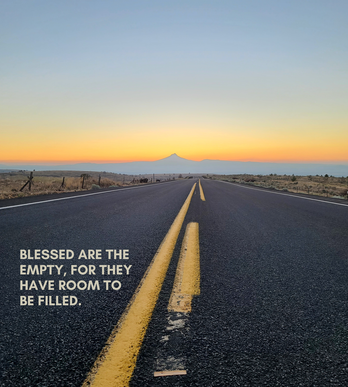 I am not okay. No, this isn’t a cry for help. I’m not depressed or suicidal. Nothing terrible has happened. Still, all is not well. In a nutshell, I’m empty. Things that once brought me meaning no longer do. Let me be clear: I’m not writing these words to elicit sympathy or solutions. I simply have to get this off my chest. I’ve attempted to write about a myriad of other, more positive topics over the last few months. Each attempt has felt like a tacit falsehood. My well has run dry. So here I am. Empty. I hate feeling this way for a multitude of reasons. For one, my life, from an outsider’s perspective, is going well. I’m mostly recovered from my 2019 accident. I’m back to traveling, hiking, and doing the things I love. Unfortunately, these things no longer make me happy the way they once did. As I write these words, a college friend of mine battles stage 4 colon cancer. Another friend grieves in the wake of her husband’s sudden drowning. A college classmate, perfectly healthy, just died of COVID two days ago. People I love are facing enormous hardship. Meanwhile, here I sit at my condo in Puerto Vallarta, México, living the dream, for all intents and purposes. The only problem? It’s not enough. I’ve faced plenty of difficulties over the course of my life. Lost one of my best friends in a freak accident in college. Lost numerous friends to suicide. Lost uncles, cousins, and friends to cancer. Had my heart broken. Broken others’ hearts. Made more mistakes than I can count. Bit my tongue off mountain biking. Tore my Achilles. Battled Lyme Disease. Fell 80 feet and broke 21 bones. Through it all, I managed to keep a positive outlook, to see the bigger picture, to find the silver lining. Until…well, now. Now that things are actually, for all intents and purposes, going well. This is the emptiest I have ever felt, and I can’t seem to figure out why. I don’t get it. I’m not sure what changed. I feel weak and guilty for being unable to pull myself up by my proverbial bootstraps like so many times before. Have you ever noticed that it’s uncomfortable to talk about current problems? Current pain? Current issues? Everyone wants to share their success story, not their present struggles. “I used to be addicted to painkillers.” “I once was an alcoholic, but I’ve been clean and sober for eight months.” “I battled depression before I found Jesus.” “I once weighed 305 pounds, but through hard work, I’m down to a healthy weight.” Not many people know how to handle hearing someone say that they’re not okay. Right. Now. When your arm is broken, people flock to sign your cast. When your spirit is broken, people run the opposite direction. I’ve built my life on the premise that we are here to give love and bring joy to others. I’ve tried (and often failed) to do so for as long as I can remember. Now, I feel like I don’t have much, if anything, to give. What’s it all for? Why am I here? Does anyone actually care? What’s the point in even trying to be a source of light for others when there’s so much darkness, darkness both within and without? Why do I consistently fail at being the kind of person I long to be? Instagram is life. Everyone is trying to present the best versions of themselves to everyone else. Even those who strive to appear authentic still have to work hard to project authenticity. What is real? Who is real? What’s the point of even trying to play the games required to succeed in this picture perfect plastic place? We all spend our lives chasing dreams, goals, agendas. We succeed. We fail. We make friends. Lose them. Fall in love. Get our hearts broken. Work hard. Get laid off. Retire if we’re lucky. And then? Then we die. I’ve worked hard to get to the place I’m at in life. Now that I’m here, I realize it’s brought me exactly zero meaning. Until quite recently, I simply refused to talk about this emptiness that’s been gnawing away at my soul. In refusing to do so, though, I felt like I was living a lie, felt as though the walls of the empty pit I’ve been in were only growing taller and more insurmountable. I tried everything. Hiked more. Drank great craft beer with good friends. Booked trips to Colombia, Sweden, Latvia. Prayed. Read books. Spoke extensively with my counselor. Finally, after a week of struggling to get out of bed (which if you know me, is antithetical to everything I am about), I knew I had to break my silence. I decided that whenever someone asked how I was doing, I would tell them the truth, no matter how uncomfortable it made either of us. The first time I shared the state of my heart with someone who wasn’t expecting it, I was surprised by the outcome. I took a chance and was honest with my former boss, a happy-go-lucky individual that I’ve never actually had much of a serious conversation with in over seven years of friendship. “I’ve actually been feeling exactly the same way,” she said. “I work, I raise my daughter, I go to bed. Then do it all over again. I can’t seem to find meaning or purpose.” Then it struck me. Maybe I’m not the only one feeling like this. I opened up to a few more people and experienced the same result. An old friend, recently sober, who has found strength in sobriety but is still looking for meaning. A family member, who I love dearly, who teaches others about God but struggles to find Him or to know that He actually cares. A former coworker, once an unwaveringly pious Christian, who, as she put it, has realized that nothing makes sense, and that after Proverbs comes Ecclesiastes. Another family member, shunned by her own daughter for reasons her offspring won’t divulge, trying to find a way to move on. Could it be that we’re all in this together? Could it be that we are all fumbling through the darkness, trying to patch together a life of purpose as best we can? The moment we think we have everything figured out is the moment we stop learning, stop growing, stop asking honest questions. “In all our searching, the only thing we’ve found that makes the emptiness bearable is each other,” Carl Sagan succinctly said. I am incredibly grateful for those in my life that have given me a space, a shoulder, and an ear. Sadly, not everyone in my life has been interested in meeting me where I am at. When I brought up my emptiness to several Christian friends, they placated me with overly simple answers. “You’ve got a God-shaped hole inside of you,” they said. “Maybe it’s sin that’s keeping you from Him. Or selfishness. Maybe He’s trying to teach you something.” Maybe all of these things are true. But maybes aren’t getting me any closer to happiness. Plus, God never promised we’d be happy in this life. He did promise peace, but I’m still waiting for Him to fulfill that promise. Also, the answers of a couple of my non-Christian friends weren’t any better. “Slow down,” they said. “Relax. Do more of what makes you happy.” The only problem? The things that used to make me happy no longer do. I’m a solutions guy. If there’s a problem, yo, I’ll solve it. It’s frustrating to be here, without a road map, without a game plan. I struggle with being alone with my thoughts. Maybe that’s why I’ve kept so busy this year, taken on so many remodeling projects, picked up two more part-time jobs. Silence can be deafening. Echoes carry the farthest through an empty space. Where do I go from here? I don’t know. I have zero answers, and that is hard for me to admit. Maybe I need to volunteer again, to give of what little I have left in service to others. Maybe now that health issues have forced me to retire from playing music, I need another passion to pour my heart into. Maybe I need to surrender to God the things I’m holding onto. Maybe I need to take my counselor’s advice and try different approaches. Meditation. Medication. Maybe I need to practice gratitude and fake it till I make it. Maybe I just need to bury it all deep down. For now, I sit here, empty. This chapter in my life doesn’t seem to have a happy ending. In my heart, though, I still believe that blessed are the empty, for they have room to be filled. My only hope in writing this is that maybe you can relate. Maybe you resonate with some, or all, of what I’ve said and how I’m feeling. Maybe you need to know that you’re not the only one who feels empty, feels lost, feels discouraged. If you find yourself where I am, reach out. Maybe somehow we can help each other find some small piece of the meaning we are looking for.  El Chiflón. © 2021 by Jon Davidson El Chiflón. © 2021 by Jon Davidson So your idea of a México vacation doesn’t include the words all-inclusive. You prefer your water cascading over a cliff, rather than over the edge of an infinity pool? You’d rather explore ancient ruins than get ruined at the club? It’s high time you visit the state of Chiapas. One of the only coastal Mexican states without a true world-class resort destination, Chiapas is instead an adventurer’s paradise, replete with stunningly blue waterfalls, Mayan ruins, multi-colored lakes, covert caves, and dizzying gorges. Don’t have much time? Here’s what to see in four days.  Cañon del Sumidero. © 2021 by Jon Davidson Cañon del Sumidero. © 2021 by Jon Davidson DAY ONE EXPLORATION TIME: CAÑON DEL SUMIDERO: 2 hours SUMIDERO BOAT TOUR: 2 hours TUXTLA GUTIERREZ: 2 hours CAN’T MISS FACTOR: CAÑON DEL SUMIDERO: 5 SUMIDERO BOAT TOUR: 3 TUXTLA GUTIERREZ: 2 Tuxtla Gutierrez, Chiapas’ capital and largest city, is a great place to begin your trip, because you’ll most likely be flying into its international airport anyway. Chiapas is one of México’s most impoverished states, but you’d never know it from the modern high-rises, sprawling malls, and trendy restaurants you’ll encounter in Tuxtla upon your arrival. I highly recommend renting a car, for several reasons: first, Tuxtla’s airport is 45 minutes from town, and Uber doesn’t service the city at this point. Second, to pack in the itinerary I’m about to describe, you’ll need a car, plain and simple, unless a private helicopter is within your budget. It wasn’t within mine. Grab your rental vehicle and head straight towards Cañon del Sumidero. This deep natural canyon just north of the city is an absolute stunner, boasting vertical cliffs as high as 3,300 feet above the Grijalva River below. Pay a 50-peso fee at the entrance to the national park, and simply follow the road as it winds ever upward. Soon, you’ll come to the first of five incredible viewpoints overlooking the canyon. These viewpoints are either right off the road or involve very short hikes, so it’s possible to reach all five in only a couple of hours. Sumidero saves its most succulent views for last, and at its final mirador you’ll find a gift shop, food, and bathrooms, as well. Next, retrace your steps, head to the nearby town of Chiapa de Corzo, and grab a boat tour, giving you the opportunity to look up at the dizzying heights you just stood on. This tour will set you back approximately 300 pesos, but will feature a snack and a lively tour guide. Finally, head back to Tuxtla. Wander around Parque de la Marimba, a lively square with great restaurants on all sides. Gaze in wonder at the beautiful bells and captivating architecture of Catedral de San Marcos. Grab a local craft beer, some mezcal and a snack at CaraCara, and go pass out in one of the many hotels near Parque de la Marimba.  El Arcotete. © 2021 by Jon Davidson El Arcotete. © 2021 by Jon Davidson DAY TWO EXPLORATION TIME: EL ARCOTETE: 45 minutes GRUTAS DE MAMUT: 30 minutes RANCHO NUEVO: 1 hour SAN CRISTÓBAL: 3 hours CAN’T MISS FACTOR: EL ARCOTETE: 3 GRUTAS DE MAMUT: 2 RANCHO NUEVO: 2 SAN CRISTÓBAL: 4 Just an hour from Tuxtla by tollway, San Cristóbal de las Casas, or San Cris, as it is affectionately known, is arguably the cultural capital of Chiapas. It boasts lively cobblestone streets, scores of incredible restaurants, artisan shops and markets, stunning churches, and more, and is surrounded by scores of natural wonders. For now, save your exploration of this Pueblo Mágico for later in the day. Adventure awaits. Drive twenty minutes to El Arcotete Parque Ecoturistico, a nature reserve featuring a spectacular rock arch with a river running through it. From the parking lot, one trail will take you down to the banks of the river and the base of the arch, and the other will let you climb through the arch itself and into a cave with unusual rock formations and windows peeking out of the cliff face to the river below. Next, drive just a couple miles on winding dirt roads to Grutas de Mamut, a spectacular cave featuring a huge main chamber and a myriad of unusual formations. Wander through the cave on a marked trail, and bring a jacket, because temperatures here are often 40 degrees cooler than the outside world above. Still have a hankering for more caves? Parque Ecoturistico Rancho Nuevo, 25 minutes southeast from San Cris, boasts the largest cave system in the area, as well as lush forests, camping, horseback riding, and a respectable zipline course. Head back to San Cris. If you only have time to explore one smaller town in Chiapas, this is it. Grab a craft beer from La Artesanal’s ample menu, and try pox (pronounced poshe), a Mayan spirit with a rich history that's distilled from corn, at Poshería San Cristóbal. Climb picturesque steps up a small hill to Iglesia de Nuestra Señora de Guadalupe, a small but beautiful church replete with sweeping views of the city. This is a great spot to catch a sunset, before calling it a day. Or before raging all night, if that’s more your style.  Cascada Velo de Novia. © 2021 by Jon Davidson Cascada Velo de Novia. © 2021 by Jon Davidson DAY THREE EXPLORATION TIME: EL CHIFLÓN: 2 hours LAGOS DE MONTEBELLO: 2.5 hours GUATEMALA VISIT: 30 minutes CAN’T MISS FACTOR: EL CHIFLÓN: 5 LAGOS DE MONTEBELLO: 4 GUATEMALA VISIT: 2 Wake up early. You’re going to have to do a bit of driving today, but believe me, it’s time well spent for the payoff that’s in store. First, head to El Chiflón. It isn’t hyperbolic of me to state that this series of cascades might just be the most beautiful group of waterfalls I have ever seen. Coming from someone who spends half the year in Oregon, that statement carries a lot of weight. Brilliantly blue water. Breathtakingly beautiful pools. Waterfalls that grow in size and beauty the further upriver you hike. You can take a trail on either side of the river, and each is run by a different company. I chose the left-hand trail. The hike itself is only about a mile, and leads past a series of smaller, yet gorgeous, falls, to the crown jewel: Cascada Velo de Novia. This 120-meter waterfall tumbles down two cliffs into a blue pool that has to be seen to be believed. Several viewpoints allow you to take in unparalleled views and get soaked by the spray of this majestic cascade. Want more? Another waterfall lies upstream, and for an additional $20 MXN, climb a rough, hot trail to the top of Velo de Novia and encounter another stunning cascade. You’ll most likely have this place to yourself, as the trail is not for the faint of heart. Swim to the base of this waterfall to cool down, and make sure to avoid getting swept over Velo de Novia, as that would certainly prove to be your final adventure. On the way down, grab a zipline and soar high above the turquoise blue river below. I did. It’s well worth the $400 MXN you’ll pay.  Lagos de Montebello. © 2021 by Jon Davidson Lagos de Montebello. © 2021 by Jon Davidson Though your mind has already been blown, your day isn’t over. Drive to Lagos de Montebello, a national park that features landscapes you never thought you’d see in Mexico. Bright green and blue lakes. Cloud forests of pine and fir. Incredible biodiversity and stunning wildflowers. By the way, I recognize that I use the word “stunning” a lot. It’s hard not to when writing about Chiapas. To learn more about the history and beauty of this magical place, I hired a guide, who hopped in my rental car and took me to all the best viewpoints of the eight major lakes that this national park boasts. At 1500 meters above sea level, Lagos de Montebello is much cooler and cloudier than its surroundings, and ominous clouds gathered as I took in breathtaking views of lakes with various hues, including the Lagunas de Colores and Lago Bosque Azul. Lagos de Montebello straddles the border of Guatemala. There’s even a small lake, the aptly named Lago Internacional, that is bisected by the border itself. My guide took me to the village of Tziscao, where we strolled across the border (no passport required), through a small stand of souvenir shops, to a small waterfall, Cascada Cola de Quetzal, on the Guatemalan side. At this point, you’ve already seen more beauty in one day than any human has a right to. If you still have time, numerous small archaeological sites dot the landscape around here. However, all of them were closed due to COVID-19 when I visited, unfortunately. Head back to San Cris and get a good night’s sleep. You’re going to need it.  Agua Azul. © 2021 by Jon Davidson Agua Azul. © 2021 by Jon Davidson DAY FOUR EXPLORATION TIME: CASCADA EL CORRALITO: 20 minutes AGUA AZUL: 30 minutes MISOL-HA: 30 minutes ZONA ARQUEOLÓGICA PALENQUE: 3 hours PALENQUE (CITY): 1 hour CAN’T MISS FACTOR: CASCADA EL CORRALITO: 2 AGUA AZUL: 5 MISOL-HA: 3 ZONA ARQUEOLÓGICA PALENQUE: 4 PALENQUE (CITY): 1 Get up. Even more so than yesterday, today is not a day to hit that snooze button. You’re going to need to hit the road early to cram in today’s ambitious agenda. Let's just say that you've saved the stressed for last. First, after driving for 90 minutes, stop to stretch your legs at Cascada El Corralito, a waterfall just a couple minutes off the highway. Walk the short distance from the parking lot into the heart of this complex of cascades. Pictures don’t do the intricacies of this unique waterfall justice. Climb the steps to the left of the falls, and venture out into the middle of it on small unmarked pathways for views that are even more up close and personal. Back to your car! What's that? You desperately need to use the restroom? No time for that. You’ll pass through the bustling town of Ocosingo, and from here, the roads begin winding through verdant Chiapas mountains and small roadside villages, slowing your progress. An hour and a half past Ocosingo, you’ll arrive at your next destination, Agua Azul. These waterfalls are arguably the most famous destination in all of Chiapas, and they live up to the hype. Park among a cluster of shops and restaurants, and walk a short path to a viewpoint at the base of these Insta-famous falls. Here, turquoise water cascades all around you in an infinitely complex series of drops and ledges. Continue up the trail on the left-hand side of the waterfall, arriving at several more viewpoints. One of these allows you to basically reach out and touch part of the waterfall. As impressive as Agua Azul looks in photos, it’s even more impressive in person. But wait, there’s more. In between Agua Azul and Palenque lies another waterfall, Cascada Misol-Ha. $20 MXN will get you into this nature preserve, and a quick hike will lead you to the base of this picturesque 35-meter waterfall. A short trail leads behind the waterfall itself, allowing you to explore a small cave while Misol-Ha’s cooling mist pummels your sweaty face. A quick 45-minute drive will get you to the gates of Palenque. These renowned Mayan ruins are a must-see when in Chiapas, and they will not disappoint. Though Palenque itself is smaller than sites like Tikal and Chichen Itza, it contains some of the most incredible architecture and sculpture that the Mayans created. You’ll need a couple of hours to walk your way through this spectacular place, and bear in mind that the park itself closes at 4:30. Still have time? I didn’t, but if you somehow managed to power-tourism your way through today more efficiently than I did, more waterfalls await near Palenque, including Cascadas de Sombrillas. 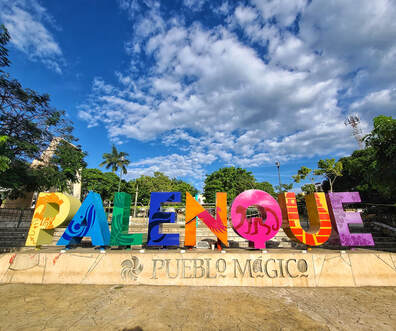 The zócalo of Palenque. © 2021 by Jon Davidson The zócalo of Palenque. © 2021 by Jon Davidson Just down the road lies the other Palenque, a modern city of just over 50,000 inhabitants. It boasts a bustling zócalo and artsy, shaded walking streets with a plethora of good restaurants. Grab a bite, relax, and prepare to either fly out or drive back to Tuxtla in the morning. - - - Four days don’t really do Chiapas justice. If you’re able to plan out a longer itinerary, do it. Natural wonders such as Volcán Tacaná, Cascadas Las Nubes, and Arco del Tiempo beckon, places that require longer drives and even overnight backpacking trips. This incredible state simply has too much good stuff for one visit. Oh darn. I guess I’ll have to go back. 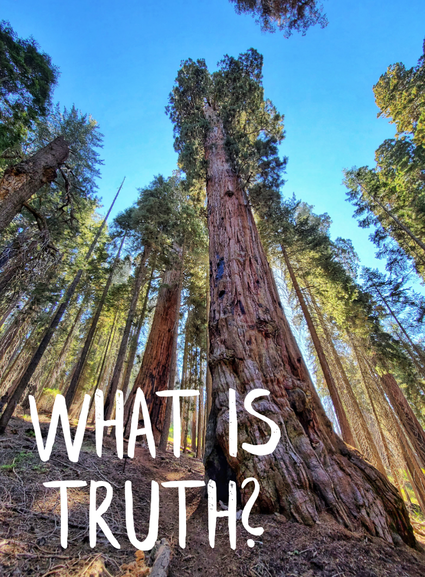 What is truth? Is it real, or merely a social construct of the human mind? Do we live in a world of many more than fifty shades of grey, or is there such a thing as absolute, concrete truth, impervious to relativity? And, if such truth does in fact exist, where should we look for it? How should we even know when we’ve found it? Do you know the truth? Do I? It turns out that Pontius Pilate’s fateful question still echoes through the ages. Here we are, two thousand years later, still depleting our days desperately trying to answer it. Many of us, those with any semblance of religious, political, or scientific beliefs, think we have much, if not all, of the truth. Others, conversely, argue that either truth doesn’t exist, or that none will ever ascertain it, and thus the pursuit of truth is but chasing after the wind. Ironically, those who say there is no absolute truth make this statement as if it itself is absolute truth, thereby refuting their claim. Furthermore, in today’s sociopolitical climate, truth seems to have been rendered irrelevant at best, and mutable at worst. With warring political factions each proclaiming that their truth is true, and with misinformation, alternative facts, and fake news filling much of truth’s original bandwidth, truth seems to have been relegated to the antique bin. If you can simply create your own truth, one that conveniently agrees with your points of view, why search for a truth that might prove more disruptive to your worldview? Ask any artist, and they’ll tell you that black and white paint, when mixed together, make grey. It would be easy to concede that truth works in much the same way. Growing up, my sister Rahel and I had a slippery relationship with the truth. To this day, we still recall certain stories and their details differently, but we do agree upon this: We each lied to get the other in trouble. Not one or two times. A lot. One instance that stands out in my mind began in the midst of a friendly one-on-one basketball game in front of our family’s garage. I had the ball. I went up for a layup. She made contact with my arm. I solemnly swear on that basketball. I know my truth. So, of course, I called a foul, certain that my call was the correct one. It turned out that my sister’s truth was different than mine. “All ball,” she said. “Impossible,” I retorted, pointing to the still-invisible welt that was sure to develop on my forearm as a result of her devastating blow. Our argument over the truth escalated from there. Rahel, two and a half years older and still bigger and stronger than me at the time (truthfully, she’s still stronger), finally exclaimed, “You want a foul? I’ll show you a foul,” as she used her formidable size advantage to tackle me and grind my face into the concrete. Her truth beat my truth. Until, that is, we went inside to face a higher truth: the judgment and wrath of our parents. Though we were both in the wrong, and though we had both distorted the truth to gain an advantage, mine was the bloody face. Thus, in the end, my truth was victorious, and Rahel was sent to her room. Though I knew it not at the time, this was not the first war started over a disagreement about the truth. Sadly, this story has repeated itself throughout human history in much larger, much more deleterious ways. Our truth is more truthy than your truth. The very existence of your truth threatens our truth. Therefore, we will fight you until there is only one truth left. May the best truth win. Conceit begets conceit. Hate begets hate. Violence begets violence. War after war, atrocity after atrocity, and genocide after genocide, and still, we are no closer to deciding who has the ultimate truth. Muslim versus Jew. Catholic versus Protestant. Christians crusading across Muslim and American lands. The Inquisition. ISIS. Buddhists of the 969 Movement. Even secular, godless society has gotten in on the fight, as Joseph Stalin, Pol Pot, and others have killed tens of millions in the name of Communism, of race, of political ideology. Could it be that we have made truth in our image? That the second we think we know the truth is the second we stop looking for it, and instead start fighting for it? Perhaps truth is not a stale collection of rules and precepts to be disagreed upon. Perhaps it’s not a precious group of doctrines worth starting countless wars over. Truth, I believe, is a person, a person who is also God. The Word became flesh and dwelt among us. “I am the Way, the Truth, and the Life,” he said. He meant it. “What is truth?” Pilate asked. Little did he know that the Answer to his question was standing before him, bloodied and beaten. I would posit that the endless quest for truth throughout the ages, from Plato to Socrates to Descartes to Nietzsche to you and me, has been, at its core, whether consciously or subconsciously, the search for the Truth himself. Author and pastor Shawn Brace, a longtime friend, put it this way on Twitter: “My safety does not come from having a perfect knowledge of the truth. My safety comes from knowing Him who is the Truth.” When we know the Truth, the Truth will set us free. Free to grow. Free to learn. Free to be wrong. When we know the Truth, we are free to love those we disagree with, not shun them. When we know the Truth, we live lives of compassion and purpose the way he did, not existences hell-bent on preserving a doctrine or belief from contamination. When we know the Truth, we know that we are forgiven when we inevitably fail. Accepted exactly as we are. Loved more than we could ever comprehend. When we know the Truth, we live lives of joyous expectation, barely able to contain our excitement at what God will do in and through us next. When we know the Truth, we finally begin to understand that God’s love for us is in no way contingent upon right living, right doctrine, and right theology, as much as he wants all of these things for us. We give up our need to be right and embrace our need to be loved. I believe that the single biggest cause of unbelief in the world today is that we the church strive so hard to know, share, and enforce what we believe to be the truth without ourselves knowing the Truth. You see, Jesus cuts through our clamorous craving to be correct, through our insatiable thirst to complicate the simple truth of the Gospel. Love God, love people, he succinctly states in Matthew 22. “These two commands are pegs; everything in God’s Law and the Prophets hangs from them.” Yes, there is a place for theological discussion, for hermeneutics, for exegesis. The Spirit of Truth indeed longs to guide us into all truth. Wouldn’t you want to know as much as you can about this God who offers us a love so recklessly lavish? But, if these important truth-seeking exercises don’t point us to love the least of these, the most different of these, the most heretical of these, then we can count them all as rubbish. “If I speak God’s Word with power, revealing all his mysteries and making everything plain as day… but I don’t love, I’m nothing,” Paul declares. I would venture an educated guess that not once in the history of the church has a well-meaning believer convinced another of any doctrine or precept, large or small, through coercion, anger, ostracism, hatred, or aggression. There is one, and only one, means by which hearts and minds are changed. That means is love. We can still speak the truth, yes; but that truth must be spoken in love, the way the Truth himself spoke to prostitutes, lepers, tax collectors, Pharisees, and Gentiles alike. The way the Truth speaks to broken people like you and me. When he speaks, The Truth calls us to know him, not to understand everything. To fall in love with him, not to ostracize those who don’t. To grow in relationship with him, not to simply increase in knowledge. The Truth stands in front of us, on trial. Will we, like Pilate, wash our hands and turn away? Or will we humbly lay down our pontificating pride and recognize that he is the Answer to every question, every doubt, every need? Do you know the Truth? Do I? Because when we know the Truth, the Truth will set us free. This article was originally published in Spectrum Magazine. 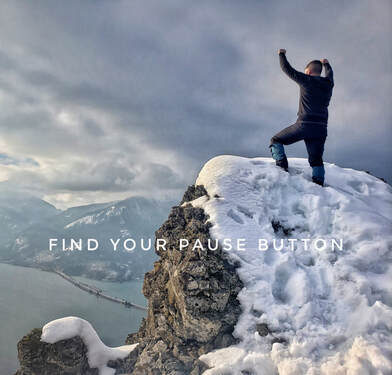 I hate snow. There, I said it. All you Oregonians who gasp in awe and wonder at the first falling snowflake, who Instagram every second of their children and/or pets frolicking in the pristine whiteness that so seldom blankets this part of the globe, can have it. Take it all. Snow is the actual worst. Before you judge me, go live in Michigan for twenty-one years like I did. Go enter a childhood of unpaid indentured servitude, chopping wood behind the house in subzero temperatures because your parents had a wood-burning stove, and told you that wood and labor are free, while electricity is not. Go grow up in a flat state where the most fun that can be had in the snow is sledding down a 20-foot pile of it in the Walmart parking lot. Go get an education in an area where they might close schools if two or more feet of snow fall overnight. If you’re lucky. Almost seventeen years ago, I moved to Portland, in large part to escape the snow. (The waterfalls, mountains, and ruggedly beautiful coastline played a sizable part in my decision, as well.) Portland, thanks to its low elevation and maritime climate, gets far less snow than other cities at its same latitude. Typically, Stumptown will see a dusting of snow a morning or two per winter, and that’s it. In addition, Portland graciously allows me to enjoy snow when I feel like it, and not when I don’t. I do love snowboarding, and here, I can drive to Mt. Hood in an hour, have my winter fun, and then return to warmer climes, all in a few short hours. Snow can be fun, as long as I can enjoy it on my terms. I don’t appreciate it when it shows up, unannounced and unwelcomed, much like ringworm, warts, or mothers-in-law. Alas, here I sit, suffering through Portland’s most significant snowfall since 2008. As I write these words, I have just returned to Oregon from spending two months at my (snow-free) home in Puerto Vallarta. Though I was working while I was there, I came back to a snow-capped mountain of items on my plate: meeting with clients, taking care of repairs at my rental houses, vetting new tenants at three of those houses, hiring a new cleaner for my Airbnb, preparing for another TV segment, training bartenders at a new restaurant, and much, much more. These items require the ability to drive: all over Portland, and to Vancouver, Redmond, and The Dalles. The incoming snowstorm took a look at my agenda and said “nah.” Right now, I can’t even get to my house in The Dalles where my coats and boots are stored, because Interstate 84 is closed due to the inclement weather. My car is snowed in, and like most Portlanders, I don’t own a shovel, so even driving to a store to buy a jacket would be a monumental undertaking. Without snow gear, I can’t even attempt to adequately appreciate the abominable arctic atrocities al fresco. I’m not alone. Snowpocalypse 2021 has effectively brought the Portland metropolitan area to its knees. The city lacks the infrastructure to deal with snowstorms, due to their infrequency; as a result, most roads will remain unplowed for the duration of the storm. Throw in some freezing rain, and you have the makings of a disaster. Most, if not all, businesses are closed. Public transit has been completely shut down. Hundreds of thousands are still without power. The governor of Oregon has even declared a state of emergency. I used to love snow days as a kid. Now, not so much. What happened to the child in me that used to relish those rare opportunities to trade classes and homework in for the simple joy of building a snow fort and pelting my unsuspecting sister in the face with an unstoppable arsenal of snowballs? In a nutshell, life. Life happened. Life came, life saw, life conquered. As we grow older, we take on more than wrinkles. We take on responsibilities. Stresses. Obligations. (All of these lead to said wrinkles, but I digress.) We of the 21st century have come to expect our lives to be well-oiled machines. For appointments to be kept, deadlines to be met. For us to be able to go anywhere we need to, accomplish whatever we have to, meet with whomever we are supposed to. Until, that is, a snow day strikes. For many, if not most, of us, our work never stops. Our phones provide us with constant, cloying connectivity, and so even during our days off, we are checking our email, responding to clients, chasing leads. The truth is, we need time off. Our minds need it. Our bodies need it. Perhaps most importantly, our souls need it. Yesterday, the power at my Gresham house went out. For 11 hours. I had already begrudgingly come to terms with enduring a snow day, come to terms with the fact that I would have to reschedule a lot of appointments over the weekend. But I wasn’t prepared for 11 hours of no wi-fi, a dying cell phone, and a dead laptop. Temperatures plummeting into the 40s inside the house didn’t help, either. I curled up, spent, inside four blankets and proceeded to feel sorry for myself. It wasn’t even the impending hypothermia that dismayed me the most. It was my inability to be productive. To do. It wasn’t enough for me to just be, even for a few short hours. What have I become? An entitled, 21st-century American? Apparently so. Eleven hours in conditions that would have been deemed luxurious by the majority of human history almost did me in. Truth be told, I have lived my life in a hurry for so long that I don’t know how to exist in any other mode. I’ve rarely been able to locate the pause button on my inner remote. When something dramatic, like falling off a volcano, or a pandemic, or even a snowstorm brings my life to a temporary halt, I feel useless. Helpless. My self-worth is far too often based on what I do, not on who I am. God foresaw our innate need for a pause button, one that gets pressed on the regular. For a break from the insanity we cluelessly pass off as real life. He created space in time, a Sabbath. He wrote it into Creation, into his ten commands. He created a period in which we were free to ignore work and set aside deadlines. A period in which we were free to commune with him and with the ones we love. A weekly snow day, if you will. This break was meant to be a gift, not a burden. But, like all of God’s greatest gifts, well-meaning believers Jewish and Christian alike turned it into exactly what he didn’t intend. Even if you’re not religious, it’s hard to argue with the wisdom of taking a break. Stephen Covey, the late author of The 7 Habits of Highly Effective People, stressed the importance of self-renewal. His seventh habit was none other than “sharpening the saw,” or a dedication to rest, exercise, play, and personal exploration, arguing that only this dedication can enable and empower us to properly execute the other six habits. “Without this renewal,” wrote Covey, “the body becomes weak, the mind mechanical, the emotions raw, the spirit insensitive, and the person selfish.” You can renew and revitalize yourself through rest and relaxation, he intoned, “or you can totally burn yourself out by overdoing everything.” In other words, we all need snow days. Even those of us who live in Puerto Vallarta. When we take the snow days, the breaks, the sabbaticals, the sabbaths, the vacations that our souls so desperately need, we find that we are actually more productive when the time comes to get back to work. Study after study corroborates this fact. Not only that, but when we take time to prioritize our relationships (both vertical and horizontal), our physical health, and our emotional well-being, we recognize work for what it is: simply one part of a healthy, balanced life, not an all-consuming fire demanding all of our attention, energy, and time. If those ever-so-trustworthy meteorologists prove correct, this snow will melt tonight and tomorrow. Life will resume at the speed I have grown accustomed to. Once the tallest drifts melt in a couple days, all tangible evidence of this winter storm will disappear. Our desperate need for snow days, though, isn’t going anywhere. Find your pause button. Use it. Think you’re too busy? Think again. Maybe you, like me, often have an overinflated sense of the importance of your responsibilities. You’re never too busy to place value on your loved ones, your health, your sanity, and your soul. Grab a blanket. A good book. Light a fire. Raise that warm mug of hot chocolate to your lips and savor a snow day, whether you asked for it or not. Your soul will thank you. 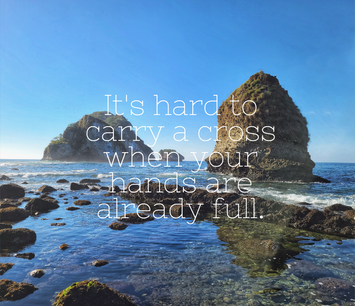 When it comes to packing one's bags, there are two types of travelers. (For those of you who have forgotten what travel is thanks to 2020, it’s when you board a plane, train, boat, or car and simply go somewhere. Apparently, it's supposed to be amazing.) There are those who pack light. One carry-on, and maybe a small personal item if they’re feeling feisty. Conversely, there are those who bring four suitcases for a weekend trip. I’m not saying that one method of packing is right and the other is wrong. I am saying that one is convenient and the other is indescribably annoying. Years ago, I dated a girl, who shall remain nameless, who fell squarely into the latter category. She epitomized it. She celebrated it. She would bring fifteen separate outfits along for a four-day trip, citing the fact that she never knew what mood she would be in when each morning rolled around. She would bring a similar number of pairs of shoes, not to mention countless coats or swimsuits, depending on the destination. Multiple laptops. A makeup bag that equaled the size of all my luggage. Guess which gentleman carried all her bags? Not this one, that’s for sure. When boarding planes, I usually pretended I didn’t know her as she bowled over small children with her plethora of oversized carry-ons. I, on the other hand, have transitioned from somewhere in between these two camps to being an extremely efficient packer. Don’t get me wrong; I enjoy wearing clean clothes as much as the next (non-touring musician) person, so I typically plan on doing laundry somewhere in the middle of longer trips so as to get by with the bare minimum of packed clothing. I figure that the less I bring, the less I have to haul around, the less I have to worry about, and the more I can simply focus on living in the moment and enjoying myself. To be fair, though, anyone who has traveled internationally with me knows that I occasionally have to make an H&M stop to buy some cheap underwear when a washing machine isn't available. The best part about differing packing styles, though, is this: unless you're rich and lazy, chances are you are in charge of filling your own suitcase, and you get to determine exactly what and how much you bring along. We, and only we, get to pack our own bags. It stands to reason that if the old adages are true, life too is a journey. It turns out that I’m much better at packing my physical bags efficiently than I am at packing those metaphorical bags I insist on bringing along on this expedition called existence. It turns out that I’m holding on to a lot of things I’d be better off without. It turns out that traveling light is easier said than done. I suspect I’m not the only one with baggage. How many suitcases of anger have you been carrying with you? Of regret? Of hurt? Of shame? If you’re anything like me, you’ve got more of this kind of luggage than they’d let you bring onto a plane. Yes, others can and will do us wrong. However, we have the power to forgive, to let go of bitterness, to dump out our suitcases full of hate into an ocean of grace. Yes, we will fail. Repeatedly. At work, at relationships, at family, at accomplishing our goals. Nevertheless, we have the ability, here and now, to empty our backpacks of embarrassment, of regret, of lies about what we’re worth. How many backpacks of money, status, success, and ego have you managed to strap to your back? I find that the more I try to rid myself of this kind of luggage, the more I seem to accumulate. Yes, we will get our priorities mixed up. We might spend years chasing wealth instead of authenticity, success instead of joy. But in this moment, in each moment, we have been given the gift of luggage that isn’t locked up, and we can choose to rid ourselves of these faulty priorities and reorient our lives towards what matters, one day and one step at a time. When we travel light, there’s no need to wait at the ticket counter. At baggage claim. At customs. When we travel light, we have less to worry about and keep track of, and can focus on the exciting journey at hand. When we travel light, we even have enough hands to help those we’re traveling alongside with their heavy bags. We can offer to carry them, as Galatians 6:2 directs, and even do what we can to help rid those we love of their burdensome baggage once and for all. Often, the bags we carry on life’s journey are not necessarily evil, in and of themselves. Suitcases often fill up with things like work, service, and social engagements, pieces of our lives that, in their proper context, are necessary and important. But when we find that most, if not all, of our bags are filled with just one of these things, when we spend that 70th hour at work to provide for our families, yet neglect them in the process, perhaps it’s time to re-evaluate exactly what our luggage is filled with. What’s in your bags? What are you holding onto? What is weighing you down? These are questions that each of us must ask of ourselves, must answer for ourselves. Some two thousand years ago, a man who was also God was betrayed by his friends. He was whipped and beaten gruesomely, then asked to carry a heavy wooden cross to the top of a hill, a cross that he would then be nailed to. Jesus was so weak from loss of blood, pain, and exhaustion that he stumbled under the weight of his cross, unable to carry it further. A man named Simon, who was passing through town, was compelled to carry the cross of Christ to the top of Golgotha. Though he knew it not, his act of kindness, though compulsory, became symbolic of what we, those who follow Jesus, are also asked to do. Jesus, in Luke 9:23 (NIV), puts it this way: “Whoever wants to be my disciple must deny themselves and take up their cross daily and follow me.” It’s hard to carry a cross when your hands are already full. Simon carried Jesus’ cross a single time. We are asked to do it every day. When we travel light, when our hands, our time, our agenda, our lives aren’t full of our own cherished luggage, we are free to carry the cross of Christ. To those not steeped in Biblical terminology, carrying a cross sounds rather morbid. Rather onerous. Rather barbaric. Jesus makes it clear, though, that he doesn’t want to burden us with a heavy load, with restrictive rules and cumbersome commands. His yoke is easy. His burden is light. He knows that when we deny ourselves and pick up his cross, we are entering into life, real life, through his death. He knows that the luggage we cling to will only bring ruin. He longs for us to trade all our baggage in. Our addictions. Our selfishness. Our love of money. Our need for approval. Our pain. Our regrets. He longs for us to free our hands and our hearts to carry one thing, and one thing only: his cross. It is at the cross, in the cross that his lavish love for a dying world is made clear. When we give up our own selfish desires so we can love God and love others, we carry the cross of Christ. Are you exhausted from carrying leaden loads of luggage? It’s time to unload. To let go. To travel light. Jesus gives us an invitation, one that all of us weary travelers can relate to. “Are you tired? Worn out? Burned out on religion? Come to me. Get away with me and you’ll recover your life. I’ll show you how to take a real rest. Walk with me and work with me--watch how I do it. Learn the unforced rhythms of grace. I won’t lay anything heavy or ill-fitting on you. Keep company with me and you’ll learn to live freely and lightly.” (Matthew 11:28-30, MSG) My burdened, battered heart longs to learn those unforced rhythms of grace. Longs to free up my hands to carry a cross. Longs to let go of the lesser things that hold me back, that keep me from the life of reckless grace that I know I was created to live. Jesus knows the depths of our perpetual struggle when he gently reminds us to pick up our cross daily. This wily world has a way of slipping things into our baggage when we’re not paying attention. Of filling our lives with things that, though they may be good, crowd out the best things. Jesus faced every temptation that we have ever known, yet clung to his singular mission, a mission that led him to travel light all the way to Calvary. Jesus doesn’t force us to surrender. Doesn’t coerce us to pick up his cross. Doesn’t rip our possessions or priorities from our grasp against our will. He simply shows us, patiently and repeatedly, that traveling light is the only way to find meaning beyond our days, to store up treasure in heaven, to live a life of open hands and an open heart. This life matters. What we do with our days, our months, and our years matters. Don’t carry those burdens for another minute. Lay them down. If you find yourself instinctively picking them up again, don’t beat yourself up over it. Instead, reach for your cross. Find someone to lavish a random act of kindness upon. Take a day off work and spend it with your family. Right an old wrong. Forgive yourself for a past mistake. Turn your eyes upon Jesus Look full in his wonderful face And the things of earth will grow strangely dim In the light of his glory and grace As you look to Jesus and pick up your cross, you’ll find that the allure your old baggage once held is fading away. You’ll find yourself living a life of simplicity, authenticity, and purpose, the life you’ve always wanted. You’ll find yourself traveling light.  Chirp, chirp. Chirp, chirp. I rubbed my eyes and squinted at the floor. Was a piece of bark squeaking in my general direction? Or was my imagination getting the best of me again? Mentally, I ran through a list of probable causes. I had just arrived at my condo in Puerto Vallarta, Mexico. My two-leg flight had only lasted seven hours, so I wasn’t overly jet lagged. I’d slept well the night before, so it couldn’t be a lack of sleep. I don’t touch psychedelic drugs, so my eyes and ears were not deceiving me. Thus, there had to be another explanation for the detritus on my floor that was attempting to communicate with me. Granted, my condo is prone to flooding. My back patio sits just a couple inches lower than the floor inside the condo, and lies underneath some palm trees. When fronds block the patio drain, and I’m not there to sweep them away, the patio fills up with rainwater, which eventually seeps underneath my back door and inundates my house. Upon arrival, I opened my front door and was once again greeted by signs of a recent flood. So, I began to clean, which is exactly what I love doing after a day of travel. While sweeping the living room floor, I kept hearing chirping from the corner. Finally, I spotted the piece of bark that was causing such a ruckus. As my broom approached it, it squeaked and hopped away. That piece of debris was, in fact, the tiniest frog I had ever seen. No bigger than a large fly, she could still hop over a foot in the air. Her adorable, tiny feet and her big, inquisitive, fearful black eyes left me no choice but to immediately fall in love with this diminutive creature. I named her Rosie the Ribbeter. Rosie hopped toward my bathroom and took refuge in the bottom of my wooden bathroom door, which had been damaged by water from the most recent flood and had separated at the bottom, creating what turned out to be a desirable habitation for such a Lilliputian amphibian. Time passed, and I settled in. I didn’t see Rosie for a couple days, and hoped that she had found her way back out to freedom via the tiny crack under my front door. One night, around four in the morning, I groggily stumbled from my bed to the bathroom. I opened the door and turned on the light. Immediately, I heard the loudest shrieking, far more piercing than the chirping from a couple days before, and saw a tiny creature jumping around. It was Rosie. She had apparently applied for permanent residency in the bottom of my door. Based on her screeches, I surmised that I had injured her in moving the door. She quickly hopped back to cover. I stopped moving the bathroom door. From that point on, I knew I had to rescue her. Unfortunately, I didn’t know how. I started leaving little puddles of water on the floor, in hopes that she could stay alive long enough to find her way to daylight. Several times a day, she would venture out of her door-fort, and I’d spot her, either in the shower or behind the toilet. Whenever I got as close as two or three feet, she would quickly hop out of my reach. Rosie was no slouch. If she ever got the chance to enter the Amphibian Olympics, I have no doubt that she would hop away with several gold medals, or gilded beetles, or whatever it is that they give out for trophies at such events. All along, I of course knew that I was trying to help her. Regrettably, I don’t speak Frog, and I had a hard time communicating my intentions. She undoubtedly saw me as a giant and a threat. Whenever I tried to guide her toward the living room, and ultimately toward the freedom beyond the front door, she would retreat to safety. After a week of this, I knew time was running out for Rosie. She needed food, and needed it fast. I wasn’t about to introduce live insects into my home, and obviously, Rosie couldn’t live in my condo forever; after I left, she would surely starve or die of thirst. If only there was a way for me to show Rosie that I was trying to save her, not harm her. If only I could speak Frog. I covered the bathroom floor with a bunch of Mason jars, lying on their sides, full of leaves, sticks, and grass. I put a little water in each, hoping to mimic her natural habitat enough that she might hop into one, and I might be able to take her to safety. On the daily, I grew more and more attached to this tiny frog. It goes without saying that this year has been one of hurt and suffering for so many, and all of my hopes of any good remaining in this broken world were pinned on somehow helping this poor, innocent frog make it to safety. One day, ten days into Rosie’s stay, she disappeared. I didn’t see her for almost 48 hours. I prayed that she had escaped, but feared the worst. I didn’t want to move the bathroom door for fear of injuring her, or worse yet, discovering that she was no longer alive. At 2 AM on a stormy night, my heart melted as I walked into the bathroom and saw Rosie sitting in the middle of the rug. When she spotted me, she hopped directly to the rim of one of the Mason jars. As I approached, the unthinkable happened. She hopped in! Quickly, I covered the jar with a lid. Rosie, to her credit, didn’t freak out. It was almost as if she knew that she was safe and was on her way to a better place, where she could live out her days happily gorging on all the insects her little heart desired. I opened my front door. Those subtropical summer rains beat down in the darkness outside as I walked a mile and a half down empty streets to a place where Google Maps told me I would find a small river named Río Pitillal. Throughout the journey, when we passed under the light of a streetlight, Rosie looked up at me from the jar with those big, black, trusting eyes. Dogs barked. Birds chirped. Rosie, unfazed, kept returning my gaze. Finally, we arrived. I found a marshy area near the bank of the river. I set the Mason jar down, expecting Rosie to immediately hop out. There were bugs to eat and puddles to splash in, after all. Instead, she stayed where she was, looking up at me with those unforgettable eyes. So, though not a fan of littering, I left the jar in a tuft of grass near a large puddle. Perhaps Rosie, after enjoying a long, exciting day of feasting on insects, could retreat to the safety of the jar that had been her home for the last mile and a half. Tears welled up, and I started to cry as I bid her farewell. As I walked back to my condo, soaking wet, I thought about all that Rosie had taught me. I thought about the fact that sometimes stories still do have happy endings. I felt a sense of self-accomplishment for having saved a tiny, helpless creature that surely would have died without me, and wondered if this was how God must feel toward us. Then, like a thunderbolt in the night, it hit me. Everything I thought I knew about God and the magnitude of his sacrifice was wrong. Yes, I had gone out of my way to save a frog, and had patted myself on the back for it. Ultimately, though, it had cost me nothing but a little time and a Mason jar. God, though, didn’t just put out a tiny terrarium for us. He didn’t just try to guide us to the front door as best he could. He didn’t just take a few hours out of his night to walk through the rain to save us, and then say, “It is finished.” Instead, the King became a tiny frog. Helpless. Powerless. Fragile. Alone. God gave up everything that divinity entails, because he knew that the only way to save a frog was to become one. He became like us, so that we could be like him. He lived among us. Taught us. Healed us. Forgave us. He learned to speak Frog. Not only that, but the story didn’t end as well for Jesus as it did for Rosie. God couldn’t just wave a wand and magically make our sins, our flaws, and the depravity of our hearts disappear. For the wages of sin is death, and the King knew that for justice to be upheld, he must take upon himself the punishment that we deserved. Just as the prophets foretold, though God became a frog, the frogs knew him not. We misunderstood his intentions, much like Rosie misunderstood mine. He was rejected, abandoned, and murdered by the ones he came to save. Little did we self-important, sanctimonious frogs know that he was the Son of God, the one that even death could not constrain. This is the Incarnation. A cold night in Bethlehem. A barn. A trough. Some farm animals. The King of everything became a tiny frog so that one day soon, we frogs can spend an eternity with Him on the banks of a river of life that never runs dry, an eternity where we can know as we are known. So, my fellow frogs, let us hop with hope. Hope for the day when wrongs are made right, when broken hearts are healed, when death and pain are swallowed up in life forever. And, the next time I’m in Puerto Vallarta, I might just mosey on back to Río Pitillal, look for a Mason jar and a pair of big black eyes, and say hello to an old friend who has taught me so much about what being a frog is all about. This piece was originally published by Spectrum Magazine (www.spectrummagazine.org). 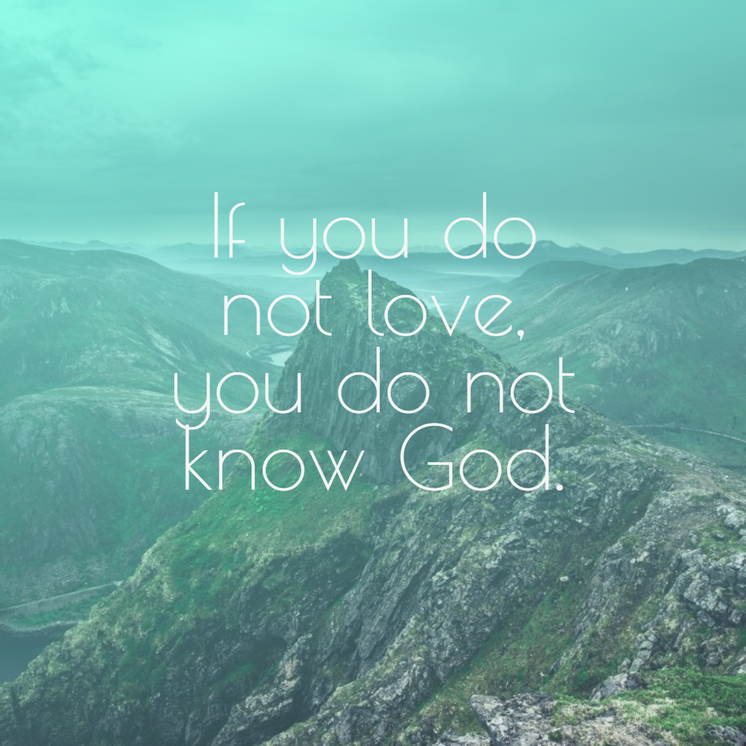 Dear Christians, My name is Jon, and I’m a fellow Christian. These modest words that follow are, collectively, an open letter to those who believe in Jesus, who call themselves Christians. I am writing this letter as a Christian who has made, and continues to make, a lot of mistakes. I have hurt both God and my fellow humans. I don’t write this letter from a position of superiority, but rather from a humble place of knowing firsthand my need for grace. We Christians share a common creed. Preeminently, we believe in Jesus, God become man, who left everything to enter our broken planet as a helpless baby. Why? So that he could show us, firsthand, what the love and grace of God is all about. Everything he did, he did in grace, with grace, because of grace. He healed the sick. Welcomed the outcasts. Touched lepers. Hung out with prostitutes and tax collectors. Not only that, but on account of his grace, he was beaten and crucified, taking the punishment our sinful selves deserved and trading it for the substitutionary atonement of a Savior, for eternal life in him. Jesus was, and is, the incarnation of grace. John 1:17 puts it this way: “For the law came through Moses; grace and truth came through Jesus Christ.” Just as Jesus lived and died with grace, we are called to live and love with the same grace we have been given. That love extends to everyone, not just to those who believe the same as us, look the same as us, vote the same way as us. 1 John 4:20 offers these words of warning: “If anyone says, “I love God,” and hates his brother, he is a liar; for he who does not love his brother whom he has seen cannot love God whom he has not seen.” How is it, then, that so much of what Christians in the United States stand for today is so devoid of grace? Lacking in love? If grace is to be our anthem and everything we live for as Christians, where is it? Where is the grace when Mexicans and other immigrants are called murderers and rapists by our President? When they are separated from their families and kept in brutally inhumane conditions, all because they want to move to a different country? When they are the target of racial epithets and told to “speak English” even though the United States doesn’t have an official language? Aren’t we all but immigrants? As Jeremiah 22:3 says, “Do no wrong or violence to the foreigner.” Not only that, but Jesus paints Samaritans, foreigners whom Jews looked down upon, to be heroes in one of his most famous parables. Remember the Good Samaritan? Yeah, that parable. Where is the grace when some Christians are adamant that children deserve the right to be born, yet don’t care about what happens to those children afterward? Where is the grace in defunding their education, in sending them to war, in not wanting to make sure they’re healthy and fed via affordable healthcare and social safety nets? Pro-life should refer to the duration of someone’s life, not just when they’re in utero. Often, all it takes for someone to cease their pro-life stance is for you to reach for their pocketbook. Furthermore, abortion rates actually decreased under Obama, because (surprise, surprise) access to affordable contraception goes a long way towards avoiding unwanted pregnancies. Where is the grace when some Christians find a way to weasel out of supporting the Black Lives Matter movement, pointing to flaws in leadership or some other unjustified excuse, and by the same token are able to explain away the President’s many flaws or support him in spite of them? Shouldn’t every Christian who has actually read and taken to heart the words of Jesus be marching hand in hand with every Black person in this country? BLM doesn’t mean that your white life doesn’t matter. Human rights are not pie. Just because someone else gains some doesn’t mean you lose yours. Furthermore, where is the grace when Trump supports discriminatory housing practices? Won’t denounce blatant racism and police brutality, even on a stage so grand as during a presidential debate? Where is the grace when Christians support any sort of white supremacy movement? Any sort of white nationalism? Can you imagine the Jesus who knelt to wash his disciples’ feet, and who, by the way, certainly wasn’t white, being at the head of a group of Proud Boys, semiautomatic weapon in hand? “There is neither Jew nor Greek, there is neither slave nor free, there is no male and female, for you are all one in Christ Jesus,” Paul says in Galatians 3:28. Where is the grace in refusing to wear a mask to help slow the spread of COVID? Instead of doing this one simple, gracious act to help protect others, some Christians make up excuses and wild conspiracy theories about governmental control. Didn’t Jesus do anything he could to help and serve others? You complain about wearing a mask, while he wore a crown of thorns. Worse yet, where is the grace, the compassion, the concern in a President who consistently downplayed the threat of COVID even though he knew the dangers? Who refused to wear masks and mocked those who did? Who didn’t listen to experts and instead initiated a halfhearted, haphazard response to the most lethal global pandemic in a century, a response which cost over 200,000 American lives? Who, when he contracted COVID himself, knowingly followed through with an engagement that evening without masking up, infecting many others in the process, and couldn’t even pay lip service to the plight of those who have contracted the coronavirus and don’t have access to the world’s best health care? Where is the grace in a system of government that consistently gives huge tax breaks to the wealthy at the expense of the lower and middle classes? A government that can’t provide necessities like healthcare and education to its lower-income citizens, the ones who need it the most? When Jesus fed the 5,000, he didn’t hang on to his loaves and fishes and launch into a diatribe about how hard he had worked for them, and how those in attendance should go get their own. Instead, he freely gave. And, it turns out, there was an abundance, enough left for everyone and then some. No, I am not condoning taking advantage of the system, and I understand that the money must come from somewhere. But, interestingly, Jesus was also a proponent of paying taxes (“Give to Caesar the things that are Caesar’s,” he said). You may call it socialism. Jesus called it grace. Where is the grace in a staged photo-op with a Bible at a church near the White House which required tear gassing innocent, peaceful citizens? This is exactly the kind of sham religion that Jesus reserved his harshest criticisms for, such as in Matthew 23. “Woe to you, scribes and Pharisees, hypocrites! For you tithe mint and dill and cumin, and have neglected the weightier matters of the law: justice and mercy and faithfulness…Woe to you, scribes and Pharisees, hypocrites! For you are like whitewashed tombs, which outwardly appear beautiful, but within are full of dead people’s bones and all uncleanness. So you also outwardly appear righteous to others, but within you are full of hypocrisy and lawlessness.” Where is the grace in a President who pledges to enact a tax cut that will defund Social Security, striking a huge blow to the well-being of retirees, people with disabilities, and widows and widowers? Where is the grace in Christians supporting this? “Religion,” James 1:27 says, “that is pure and undefiled before God the Father is this: to visit orphans and widows in their affliction, and to keep oneself unstained from the world.” Isaiah 1:17 says it even more succinctly: “Learn to do good; seek justice, correct oppression; bring justice to the fatherless, plead the widow’s cause.” Where is the grace in a President who lashes out in egregiously ugly ways at anyone and everyone who either disagrees with him in the slightest, or who has wronged him in any real or perceived way? He has obviously never read the following words of Peter: “Do not repay evil with evil or insult with insult. On the contrary, repay evil with blessing.” (1 Peter 3:9). Jesus told us to turn the other cheek, but Trump can’t even turn the other tweet. Where is the grace in Christians who implicitly condone this petulant bully’s behavior, turning a deaf ear to his words and somehow thinking that he cares at all about what Jesus has to say, after admitting he has never asked for forgiveness in his life (one of the only prerequisites for salvation, I might add). Where is the grace in a President who is so enamored with being the richest and the best that he tells more lies than any other president in history (according to the unbiased, nonpartisan reports of Politifact) to ensure that he is portrayed in nothing but a flattering light? He must have missed those verses about the meek inheriting the Earth, or about the first being last and the last being first. He also never read Proverbs 21:6: “The getting of treasures by a lying tongue is a fleeting vapor and a snare of death.” Where is the grace in his faithful followers, who blindly believe what the President says rather than trusting experts, science, or facts? “Fake news” is undoubtedly the most genius catchphrase that Trump has ever employed; with it, he and his followers can conveniently dismiss any proven fact that challenges their worldview as part of a vast conspiracy of the left-wing media. Where is the grace for our planet? Our future? Our kids and their kids? If this Earth is a gift from God, created by his hand, wouldn’t we want to take care of it? To take every opportunity to support green energy? Renewable resources? Recycling? To treat animals kindly? Instead, we have a President who, in 2009, in the New York Times, supported legislation combating climate change, saying that “if we fail to act now, it is scientifically irrefutable that there will be catastrophic and irreversible consequences for humanity and our planet.” Then, when it became politically necessary in order to court Republican voters, he flipped the script. He called climate change “an expensive hoax,” gutted the EPA and put coal lobbyists in charge of it, pulled us out of the Paris Agreement, dismantled the Clean Power Plan, rolled back rules limiting methane pollution, and loosened emissions standards for cars and trucks. We only have one planet. One future. Yet, the callous disregard for the environment by our President, and many who support him, in the name of economic strength shows a complete lack of grace for our world and for those who will inhabit it just 20, 30, 50 years from now. What happens to those fossil fuel industry jobs when fossil fuels run out? When the Earth is rendered completely uninhabitable? Furthermore, Trump’s policies have cost the renewable energy sector over 622,000 jobs since he took office. How’s that for building a robust job market? What happened to love? Love for everyone in this human race, whether gay or straight, Black or white, rich or poor, male or female or any other identification? If you have everything except for love, you still have nothing, according to 1 Corinthians 13. You can’t love God and hate Muslims. You can’t love God and turn a blind eye to systemic racism. You can’t love God and discriminate against LGBTQ people. You can’t love God and abuse women. Wake up, Christians. If there is no grace in what you believe and practice, then you are not of God. I don’t actually expect my writing to change anyone’s mind. Republicans have been branding themselves as “God’s party” for years, even though the notion that God can be reduced to either political party is asinine. Both parties, and their respective politicians, are far from perfect; however, the Democratic Party consistently bases its platforms on inclusion and on taking care of everyone, not just the rich, the white, the male. Which, as it turns out, is exactly the kind of social agenda Jesus espoused. Still, I am not writing this letter in order to get you to swap your partisan affiliation. I am writing it because it breaks my heart to see so many of my friends turn against the God of grace and love that the Bible portrays because they see such a different God embodied in the lives of those who claim to follow him. Do you get it, Christians? Your graceless words and actions are the biggest cause of unbelief in this broken world. You may think you’re standing up for what is good and right, but in reality, you’re locking the doors to heaven and throwing away the key. Yes, God cares about what we do. But our actions, our sins, our shortcomings, and our transformation are all between us and Christ. “We can’t legislate man to perfection again,” sings Thrice. The way to lead others to Jesus is never judgment and hate. Rather, it’s always grace and love. Right before God, through Isaiah in Chapter 1, told Israel to learn to do good, seek justice, and correct oppression, he went off on them for the religious show they put on. For their outward display of piety. For their hypocrisy. The one thing God hates more than evil is evil dressed up as good. The only antidote to evil is grace. Amazing, surprising, unexpected, undeserved, reckless grace. Let me be clear: if we don’t live in grace, we don’t live in Christ. “You are severed from Christ, you who would be justified by the law; you have fallen away from grace,” says Paul in Galatians 5:4. God is love. Love is not just another one of his many attributes; it fundamentally comprises who he is. His love for us is so strong, so pure, so great, that he would rather give up his life than give up his love. There’s more. He doesn’t just love us, but he calls us to love in the same way as he did. “Just as I have loved you, so you are to love one another,” he says in John 13:34. He doesn’t give us the option to pick and choose who we love. Who we show grace to. Who we accept, welcome, embrace. “Anyone who does not love does not know God, because God is love,” 1 John 4:8 succinctly states. If you do not love, you do not know God. Mic drop. These are not my words. They are God’s. Wouldn’t it be amazing to live in a world where people would know we are Christians by our love, rather than by our judgmental attitudes, hatred towards those not like us, and utter hypocrisy? Jesus said, “By this all people will know that you are my disciples, if you have love for one another. (John 13:35)” He meant it. This is exactly what he desires. Love is not a noun. It is a verb. God did not simply sit on his throne and wax eloquent about how much he loves us. Not even close. He counted everything as loss, including his own life, to put his love into action. He calls us to do the same. If we say we love everyone, yet live, act, or vote in a way that doesn’t match our words, we don’t love. Period. “Let us not love in word or talk, but in deed and in truth,” 1 John 3:18 affirms. So, Christians, I invite you to take a long, hard look at what you believe. Ask yourself: where is the grace? I mean it when I say that I will continue to do the same. Is grace the driving force behind our attitudes, our actions, our beliefs, our attributes? If not, let us ask God for grace. He will give it freely. His grace is enough. For you. For me. For a broken world desperately in need of the love of the Father and the love of fellow humans. Amazing grace, how sweet the sound That saved a wretch like me I once was lost, but now am found Was blind, but now I see |
Proudly powered by Weebly
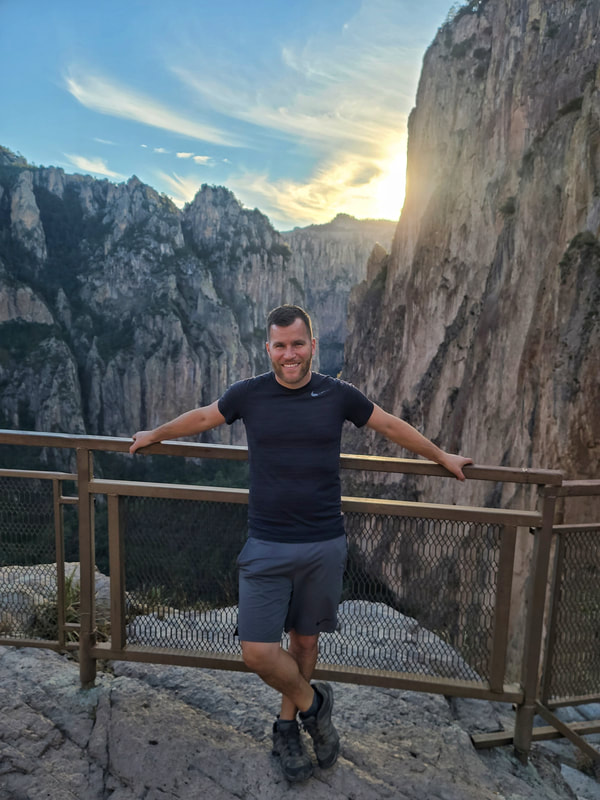
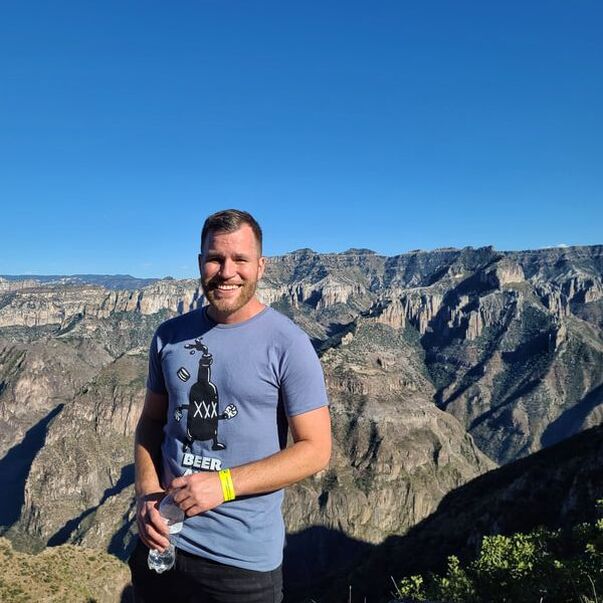
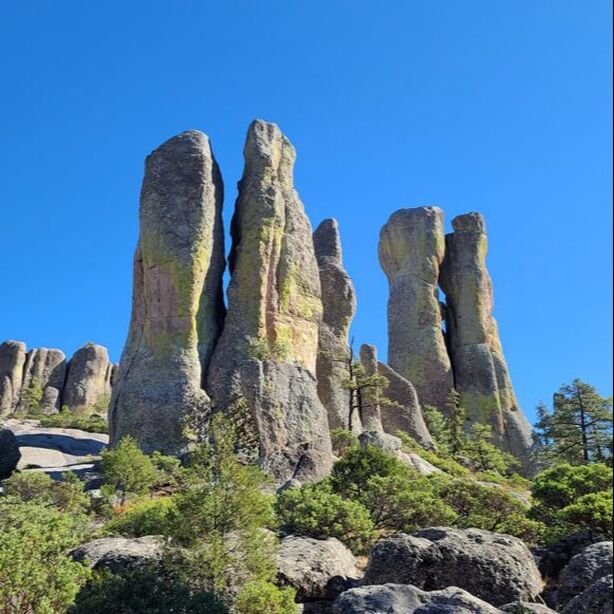
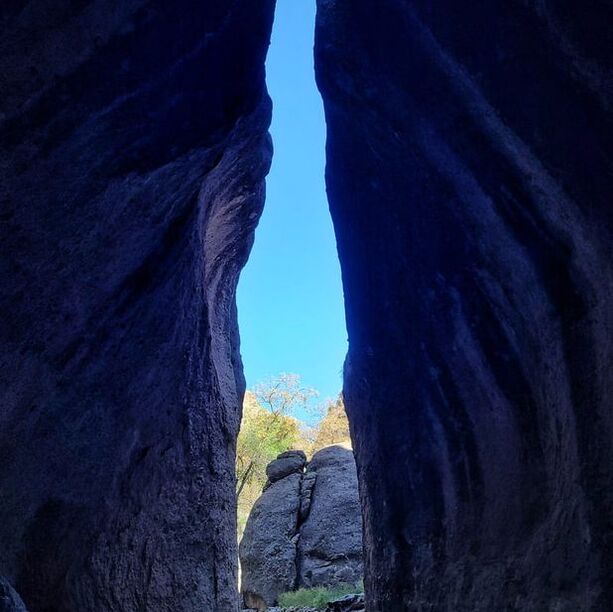


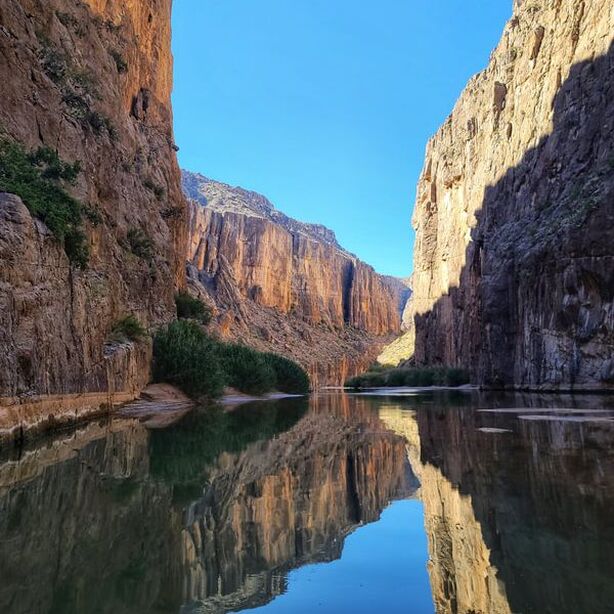
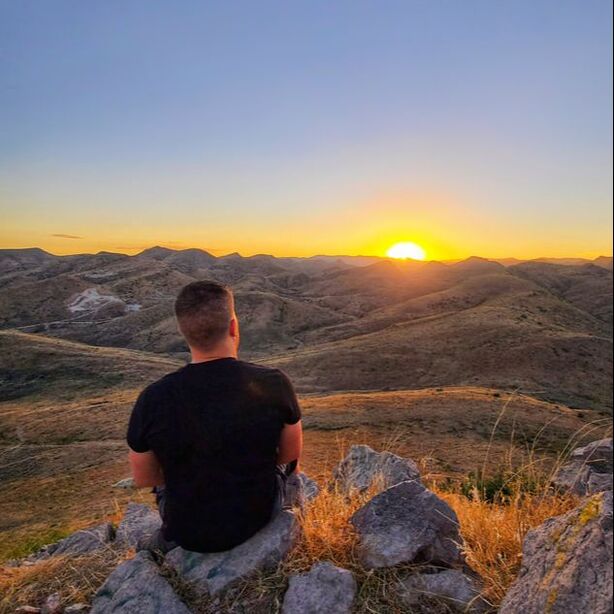
 RSS Feed
RSS Feed